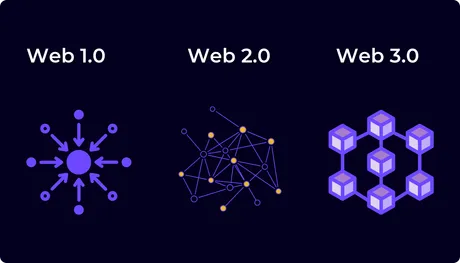
Even Google understands this.
Web3 is a term used to describe the next iteration of the internet, one that is built on blockchain technology and is communally controlled by its users.
So how many products actually qualify as WEB3 under this definition?
It's pretty clear that the answer is very few at best. Of course this doesn't stop every single project built on blockchain from blindly using this moniker as a cliché marketing tactic. Such disruption; much innovation. It's like calling something high quality or a self-declared expert trying to silence dissent within the ranks. It means nothing and becomes worthless within a river of misinformation that feeds into an ocean of financial incentives. All people really want to hear is "number go up". Everything else is noise in the face of greed or desperation.
Take gaming for example
Name a single WEB3 game. One that's controlled, maintained, and upgraded by the community. There are zero. Not a single game qualifies as WEB3, and yet they all claim to be WEB3 because blockchain = WEB3 within the marketing world. No one can submit code, skins, or content to their favorite game, and more importantly no one can get paid to do those things. It's not enough that WEB3 simply be open source and available to all; it has to include financial incentives that allow the community to actually get paid for their work.
The fundamental crux of WEB3 is a thriving job market.
If the network in question does not provide jobs to the users, then it isn't WEB3. End of story. The community must be given an opportunity to provide value to the system, and in return the system must provide value to the user. Such a basic equation that is shockingly difficult to implement on a specific basis.
To complicate matters further, just because a network actually qualities as WEB3 doesn't mean that it automatically has value or is better than the WEB2 equivalent. Take Hive for example. Certainly our network is no longer run by the centralized entity that created it, which is more than 99% of the other projects out there can claim. We also provide value to the community through the whole blogging thing. But does blogging actually generate that much value for the network in return for what users are paid?
That's a subjective debate that could go either way depending on perspective. At the end of the day it's not like Hive has gone viral because it has so much intrinsic value. So either we are doing something wrong or we just haven't reached that required critical mass needed to sustain ourselves. This is as an objective of an assessment of our situation that I can possibly give before I start becoming extremely biased.

Web3 is the antithesis of Web2
And yet Web3 developers are constantly trying to jam the Web2 business model down the throat of Web3. This is to be expected given the completely opposite paradigm. An awkward transition is unavoidable. Still, that doesn't make the struggle any less frustrating or ridiculous. We have to create solutions using strategies and templates that were built from the ground up. The problem? Those templates don't actually exist yet; we have to build them. Until then it's all game theory.
This is why every four years crypto gets a new narrative followed by a rampaging shitcoin casino of copycats. ICOs, NTFs, DEFI: doesn't matter what the given narrative is. It's like a good movie that gets rehashed a thousand times over into worse and worse derivatives. Copy of a copy of a copy.
Governance
The value of a community are the people within it. This holds true in Web3 the same as anywhere else. Unfortunately that creates a lot of complications down the road, especially for a decentralized system. Electing a good leader and putting them in charge is hard enough a feat to achieve. Creating a system where everyone follows the rules but nobody in particular is actually in charge will be one of the most difficult achievements to attain going forward.
This kind of thinking loops us back to the reality of the situation.
This is all extremely theoretical and doesn't actually exist yet, even though everyone within the space is claiming they've figured out the solution. They have not. Not only does Web3 infrastructure have to provide work for the citizens in exchange for fair value, but also there must be a clear and defined governance structure that permeates the entire system for this reality to even be possible. Today that's simply not what we see. The original development team is in charge of the project more than 99% of the time, which automatically downgrades it to Web2.5 at best. Sad but true.
The only question is whether we not we view this as a gigantic setback or a huge opportunity to build out the cutting edge. This is all a matter of perspective. None of this is going to come easy, and as we all know taking a few risks in a space like this can yield obscene rewards. Would it be nice if we could just wake up tomorrow and participate with a perfected Web3 ecosystem? I mean sure but that's just not how it works. Evolution is a slow grind until we look back and see how many steps we've taken.
Return from WEB3 is Highly Theoretical to edicted's Web3 Blog
